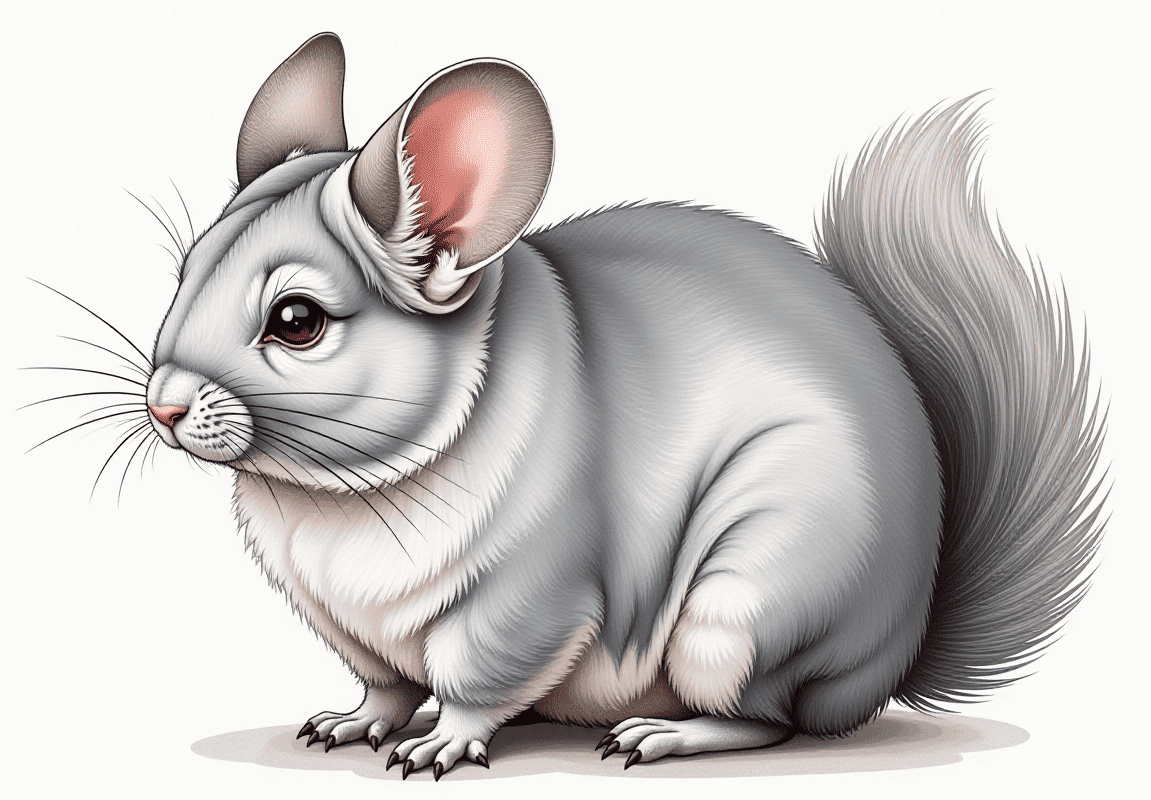Why Do Chinchillas Bite? Understanding and Preventing Chinchilla Bites
Chinchillas are charming, fluffy pets that bring joy to many owners. However, like any animal, they communicate in their own ways, and sometimes that includes biting. If you’ve ever asked yourself, Why do chinchillas bite? you’re not alone. In this article, we’ll uncover the reasons chinchillas bite, whether their bites pose a risk, and how to prevent them. By the end, you’ll have a deeper understanding of your furry friend’s behavior and how to foster a trusting bond with them.
Why Do Chinchillas Bite?
Though chinchillas are typically gentle and reserved, they may bite for various reasons. Recognizing these triggers can help you minimize biting incidents and strengthen your relationship with your pet.
1. Fear or Stress
Being prey animals, chinchillas are naturally cautious. If they feel frightened or stressed, they may bite as a defense mechanism. This can occur if they are handled too roughly, exposed to loud noises, or placed in an unfamiliar setting.
2. Feeling Threatened
Chinchillas are highly sensitive to their environment. If they feel trapped or cornered, they might resort to biting to protect themselves. This is especially common if they haven’t been properly socialized or are approached too quickly.
3. Mistaking Fingers for Food
Due to their poor eyesight, chinchillas rely on smell and touch. If your fingers carry the scent of food, your pet may mistakenly nibble on them, thinking they are a treat. While this isn’t aggressive behavior, it can still be painful.
4. Lack of Socialization
Chinchillas that haven’t been regularly handled may be more prone to biting. Without proper socialization, they may perceive human interaction as a threat rather than a source of comfort.
5. Pain or Discomfort
If a chinchilla is in pain due to an injury, illness, or dental issues, they may bite as a way to express their discomfort. A sudden increase in biting could indicate a health concern that requires attention.
Are Chinchilla Bites Dangerous?
Chinchilla bites are usually not dangerous, but they can be painful and may break the skin. Since their teeth are adapted for chewing tough plant material, their bites can be more intense compared to other small pets. If you do get bitten, cleanse the wound thoroughly with soap and water to prevent infection. Watch for redness, swelling, or signs of infection, and seek medical advice if needed.

While chinchilla bites aren’t typically harmful, they often signal stress, fear, or an underlying health issue. Understanding the cause of biting is essential for both your safety and your pet’s well-being.
How to Prevent Chinchilla Bites
Reducing the likelihood of chinchilla bites involves understanding their behavior and ensuring they feel safe. Here are some ways to prevent bites and build a trusting bond with your pet:
1. Handle Your Chinchilla Gently
Always approach your chinchilla with calm, slow movements. Let them come to you rather than forcing interaction. When picking them up, use both hands to provide support and avoid grabbing them from above, as this can make them feel threatened.
2. Socialize Your Chinchilla
Regular interaction helps chinchillas become accustomed to your presence. Offer treats from your hand to create positive associations, but be mindful to avoid accidental bites if they mistake your fingers for food.
3. Respect Their Boundaries
Chinchillas are independent creatures and may not always want to be handled. Pay attention to their body language—if they seem uneasy or try to move away, give them space.
4. Maintain a Calm Environment
A peaceful setting helps chinchillas feel secure. Minimize loud noises and avoid exposing them to potential stressors, such as other pets, to create a comfortable living space.
5. Monitor Their Health
A sudden change in behavior, including increased biting, may indicate pain or illness. If your chinchilla starts biting unexpectedly, schedule a vet visit to check for any health issues.
Building Trust with Your Chinchilla
Developing a strong bond with your chinchilla requires patience and consistency. Here are some additional tips to help establish trust:

- Spend time near their cage and speak softly to them.
- Offer healthy treats like dried rose hips or hay cubes.
- Allow them to approach you rather than forcing interaction.
- Maintain a consistent routine to help them feel secure.
Conclusion
So, why do chinchillas bite? As we’ve discussed, they may bite due to fear, stress, feeling threatened, mistaking fingers for food, or experiencing pain. While their bites aren’t usually dangerous, they can be uncomfortable and should be addressed. By recognizing your chinchilla’s behavior and needs, you can take steps to prevent bites and nurture a trusting relationship.
Chinchillas thrive in calm, loving environments, and with patience and care, you can enjoy a happy, bite-free bond with your furry companion. If you ever have concerns about their behavior or health, don’t hesitate to seek advice from a veterinarian or an experienced chinchilla owner.
